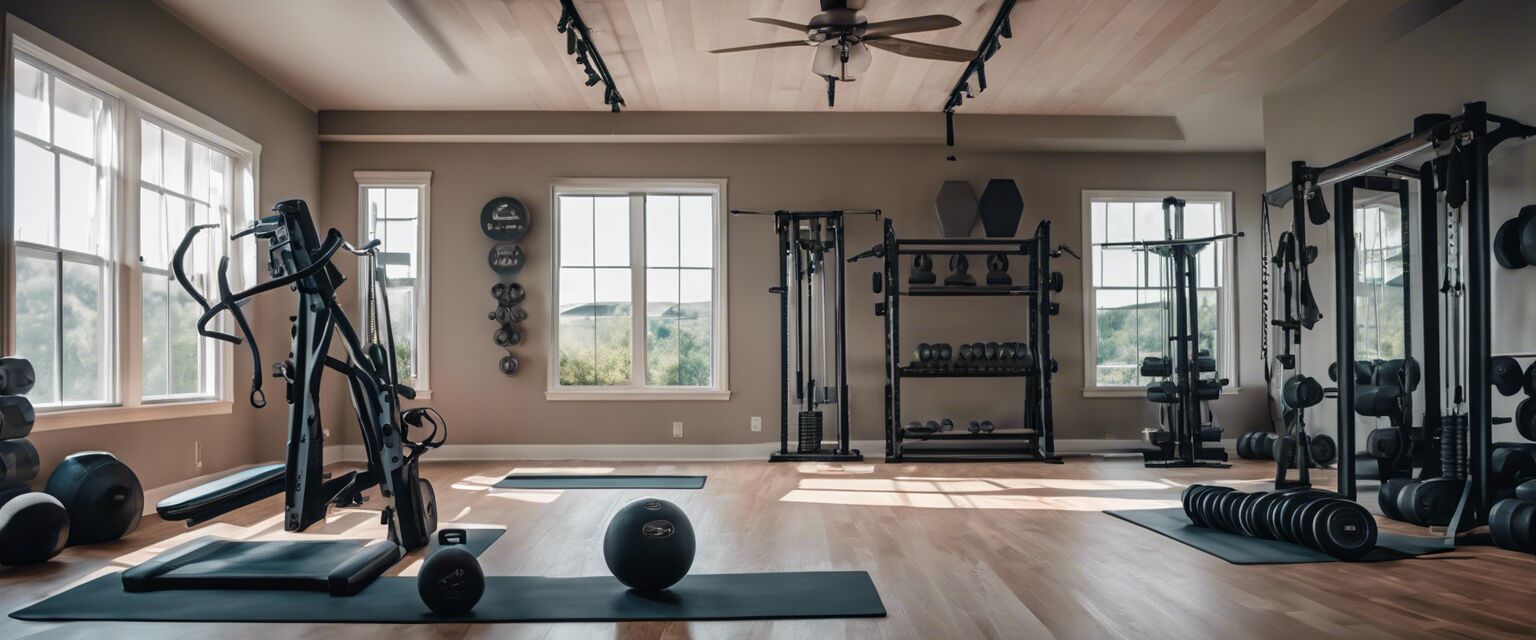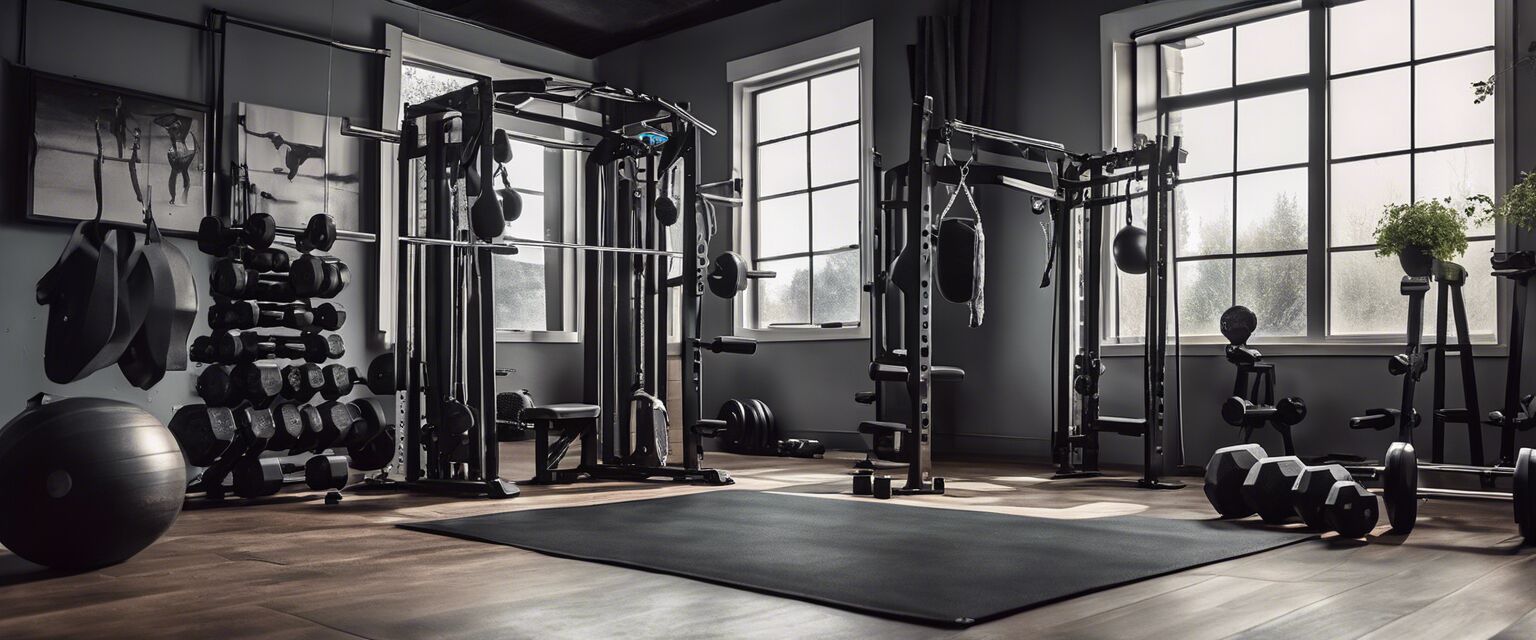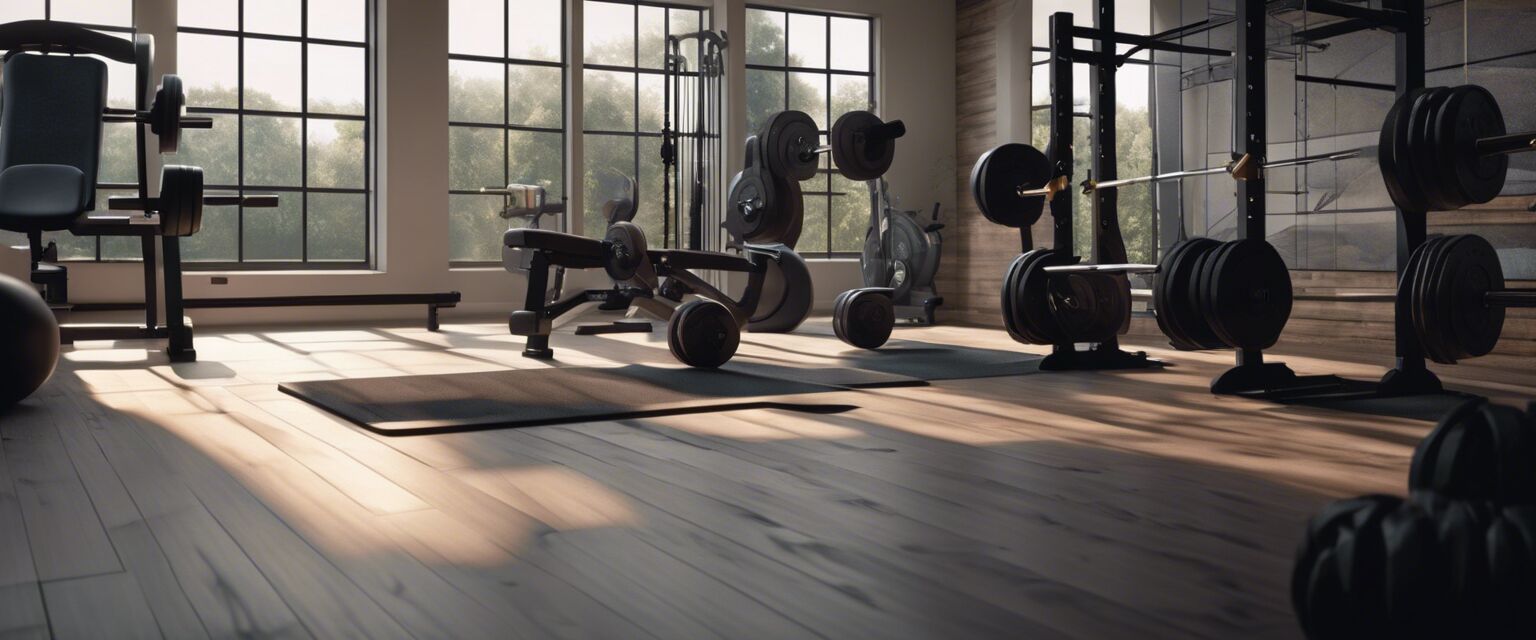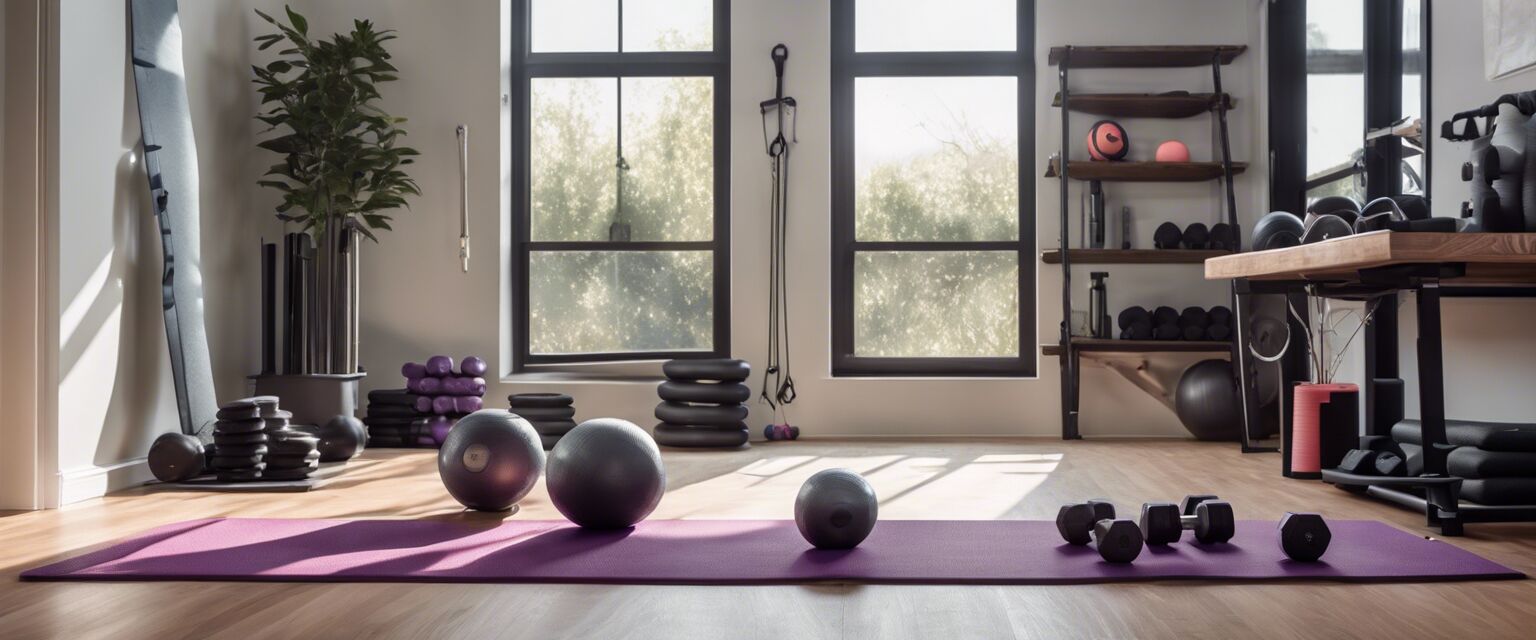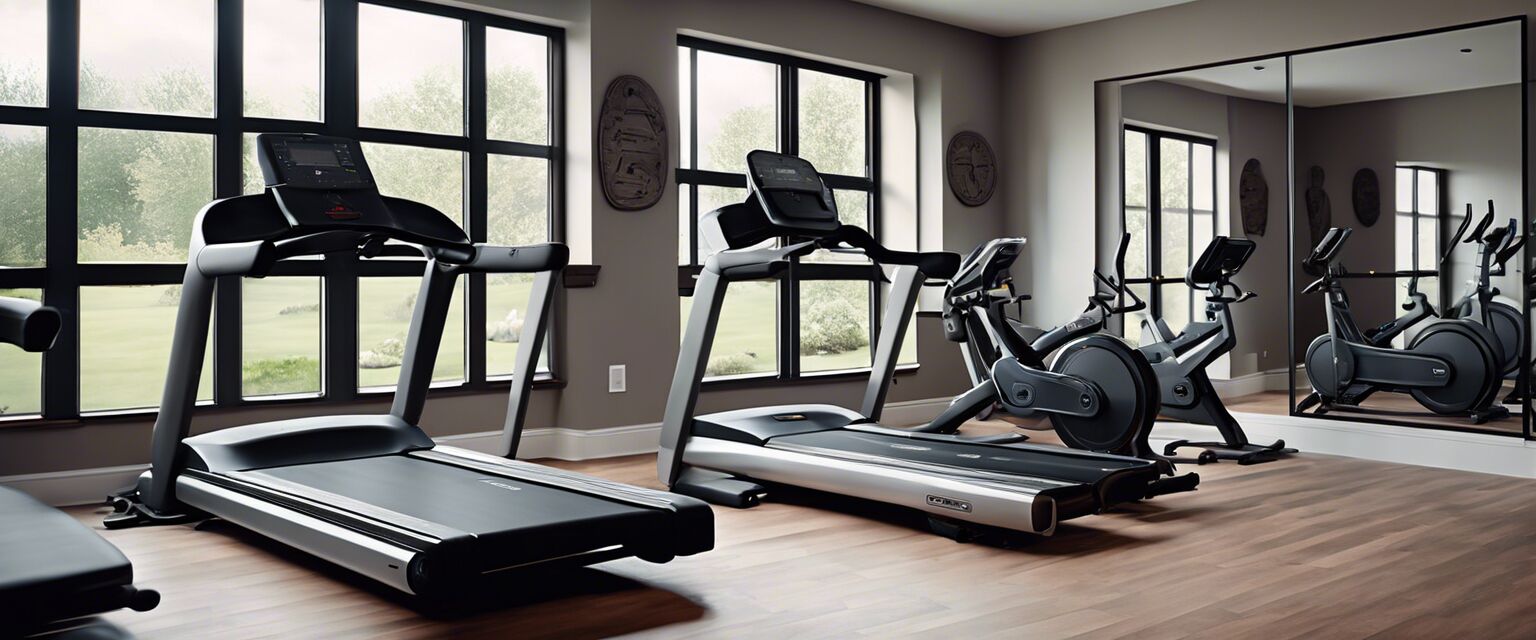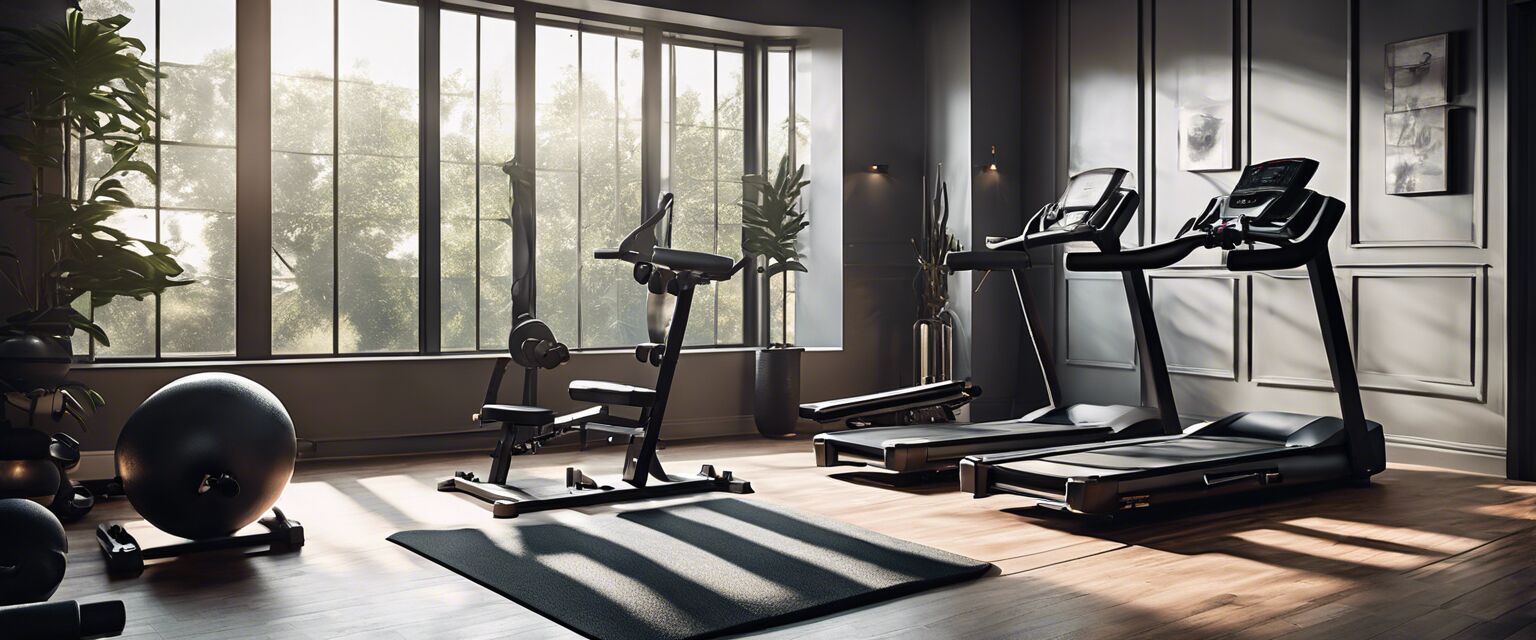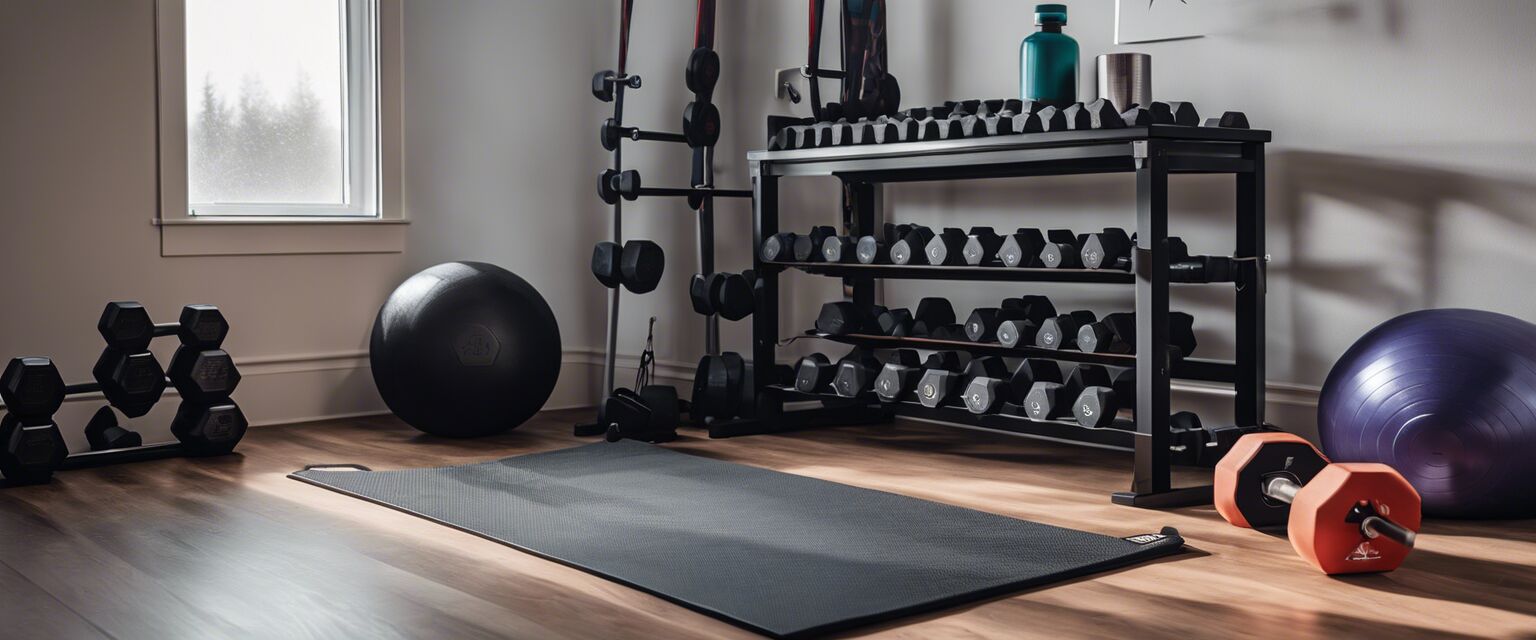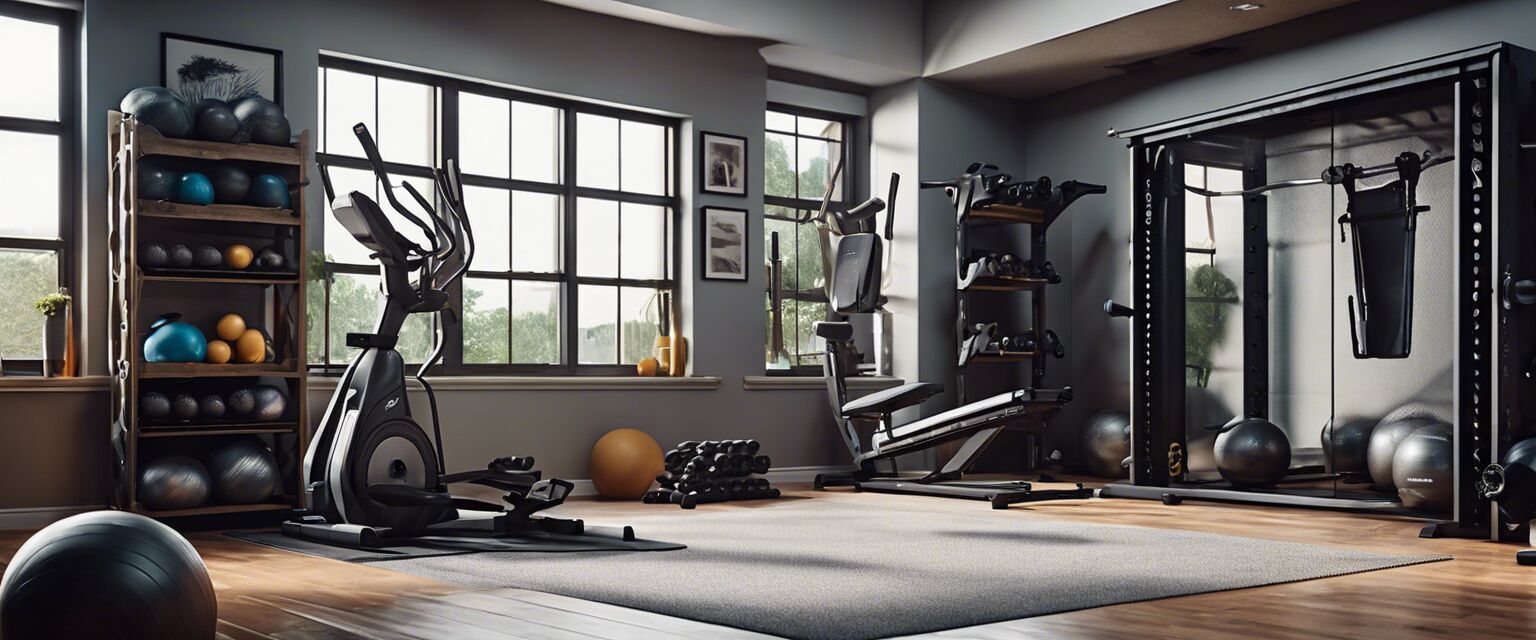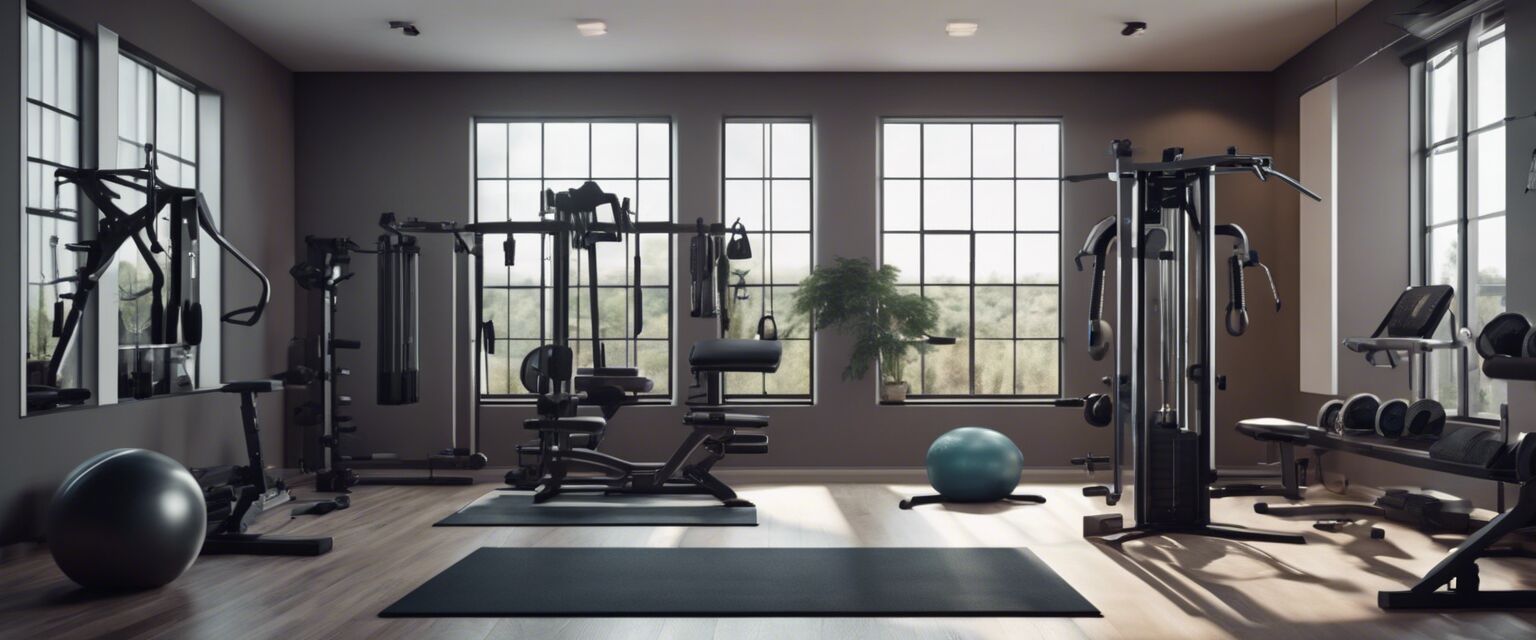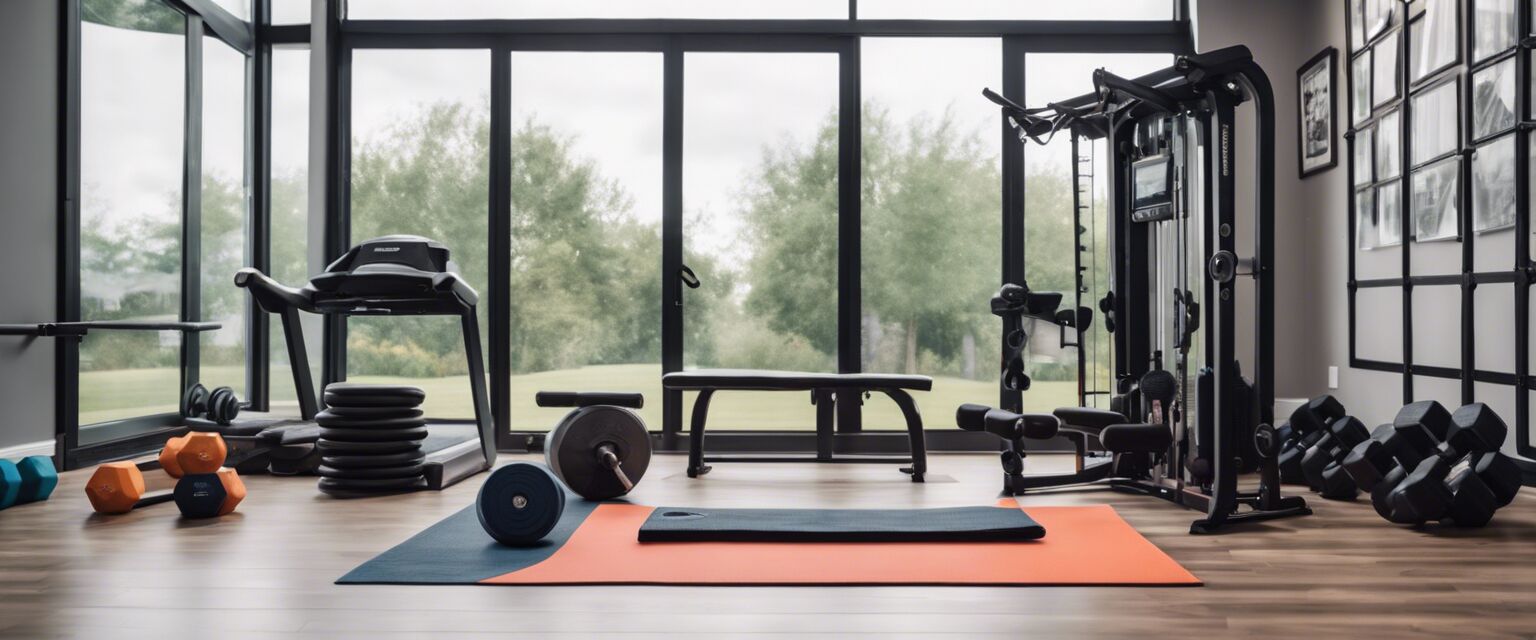
DIY Home Gym Setup
Key Takeaways
- Creating a home gym can be budget-friendly.
- Essential equipment includes dumbbells, resistance bands, and a yoga mat.
- Space optimization is crucial for an effective workout area.
- Personalize your gym with your favorite colors and decor.
Setting up your own home gym can be a rewarding and cost-effective project. Whether you're looking to save money on gym memberships or simply want the convenience of working out at home, this guide will provide you with detailed tutorials on creating a low-cost home gym setup. Let's dive into the essentials!
Benefits of a Home Gym
Having a home gym offers numerous benefits that can enhance your fitness journey:
- Convenience and flexibility in workout times
- Privacy and comfort while exercising
- Customization according to personal fitness goals
- Cost savings over time by eliminating gym fees
Essential Equipment for Your Home Gym
When setting up a home gym, you'll want to consider the following equipment:
| Equipment | Purpose | Estimated Cost |
|---|---|---|
| Dumbbells & Barbells | Strength training | $50 - $200 |
| Resistance Bands | Versatile strength workouts | $20 - $50 |
| Kettlebells | Functional training | $30 - $100 |
| Yoga Mat | Stretching and floor exercises | $15 - $50 |
| Cardio Equipment | Cardiovascular fitness | $100 - $300 |
Choosing the Right Space
Selecting the right space for your home gym is essential. Here are some factors to consider:
- Size: Ensure there's enough room for your workouts.
- Flooring: Choose appropriate flooring for safety and comfort.
- Lighting: Proper lighting can enhance motivation.
- Ventilation: Keep the area well-ventilated to maintain comfort.
DIY Home Gym Setup Ideas
Here are some creative ideas for setting up your home gym:
- Use a spare room or garage for your gym.
- Install wall-mounted racks for equipment storage.
- Incorporate mirrors to enhance space perception.
- Decorate with motivational quotes and colors that inspire you.
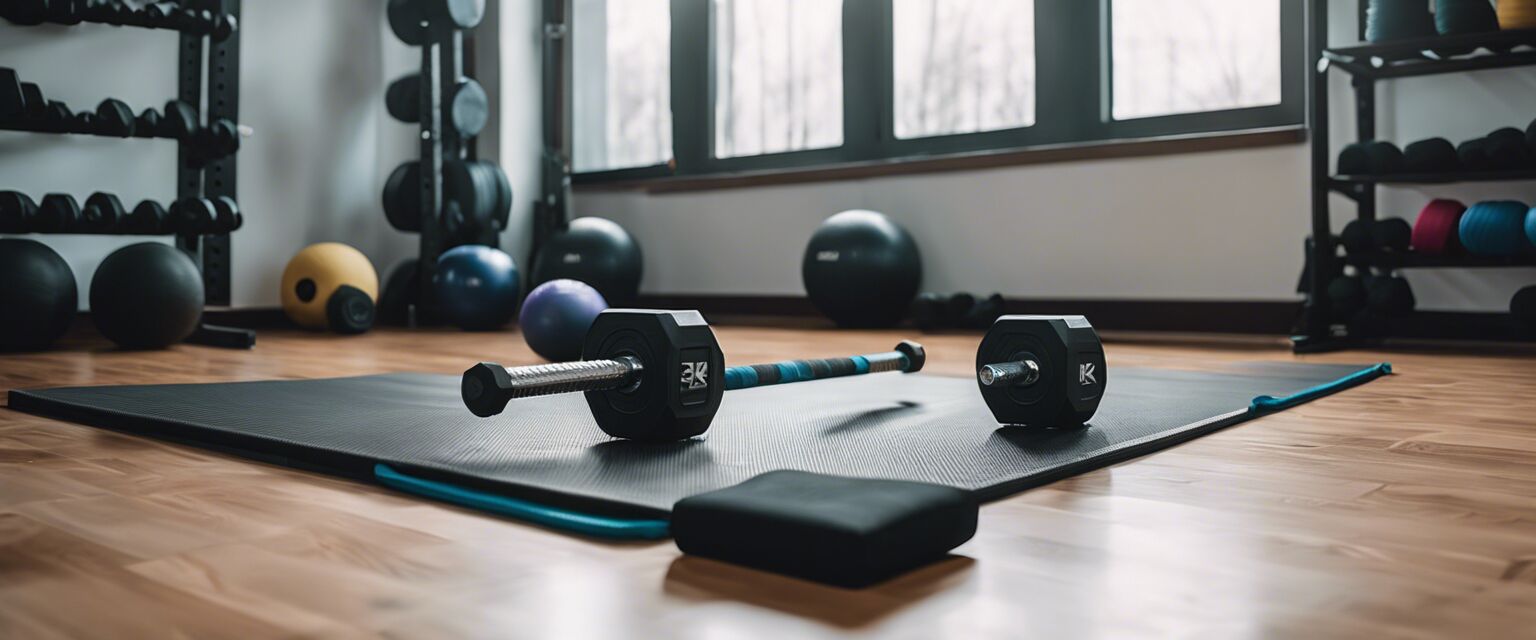
Home Gym Flooring Options
Choosing the right flooring is crucial for safety and functionality. Consider these options:
| Flooring Type | Pros | Cons |
|---|---|---|
| Interlocking Foam Tiles | Soft, cushioned, easy to install | Can be slippery when wet |
| Rubber Flooring | Durable, non-slip, great shock absorption | Can be expensive, heavy |
| Carpet Tiles | Soft underfoot, great for stretching | Can absorb odors, difficult to clean |
| Vinyl Flooring | Water-resistant, easy to clean | Can feel hard underfoot |
Creating a Workout Routine
Once your home gym is set up, creating a workout routine is essential. Here are some tips:
- Incorporate a mix of strength training and cardio.
- Set realistic goals and track your progress.
- Change your routine every few weeks to avoid plateaus.
- Consider using apps or online videos for guidance.

Tips for Staying Motivated
Staying motivated in your home gym
- Set specific and achievable fitness goals.
- Schedule your workouts as you would any important appointment.
- Keep your workout space organized and inviting.
- Join online fitness communities for support.
Conclusion
Setting up a DIY home gym can be an exciting and fulfilling project. With the right equipment, space, and motivation, you can create an effective workout environment that suits your lifestyle. For more ideas on fitness equipment and home gym essentials, check out our sections on cardio machines, dumbbells & barbells, and home gym flooring.
Pros
- Cost-effective in the long run
- Convenience of working out at home
- Customizable to your personal preferences
- Flexible workout times
Cons
- Initial setup costs can add up
- Requires space that may not be available in small homes
- Potential for lack of motivation without a gym environment
- Maintenance and cleanliness are your responsibility
